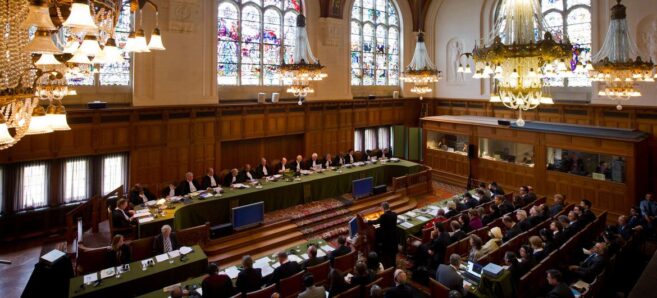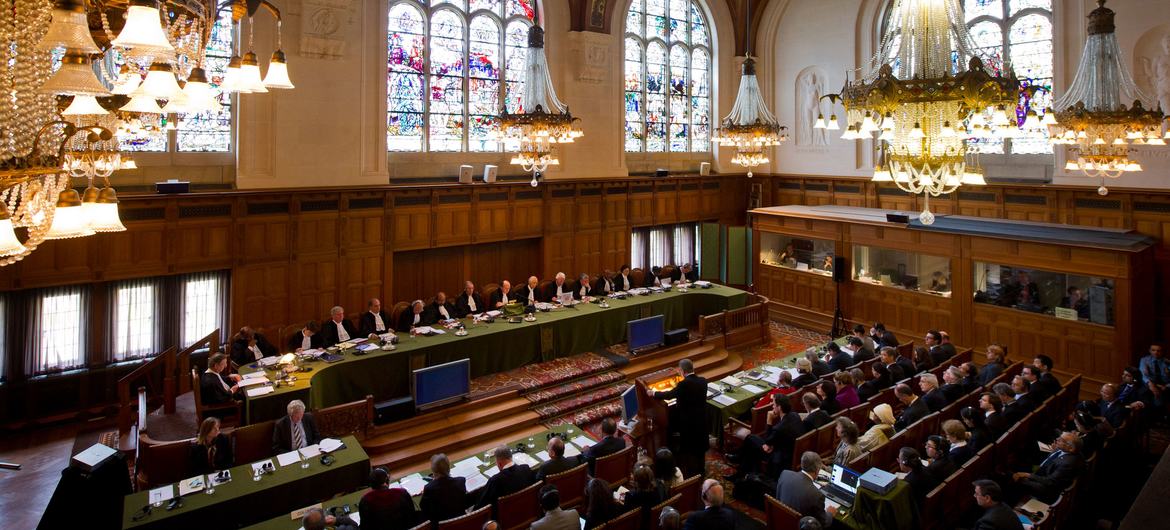The International Court of Justice (ICJ) elected five new judges on November 9th after a round of votes held by the General Assembly and the Security Council of the United Nations (UN). The voting is via secret ballot. The Government of Belize paid keen attention to the judges elected as the territorial claim by Guatemala over the Jewel will be settled at the ICJ, with the case’s first oral hearings expected for the summer of 2024.
The voting done by the UN’s General Assembly and Security Council takes place simultaneously but not together to avoid any influence on either entity. The elected judges must attain a majority of votes from both parties. The five selected judges will serve nine years starting from February 6, 2024. The five judges include Judge Hilary Charlesworth from Australia, who was re-elected. The new members are Bogdan-Lucian Aurescu of Romania, Sarah Hull Cleveland of the United States of America (USA), Juan Manuel Gomez Robledo of Mexico, and Dire Tladi of South Africa.
When these new judges take their seats, the ICJ will elect a president and vice-president from among its members to serve for three years. The other judges in 2024 include Ronny Abraham of France, Abdulqawi Yusuf of Somalia, Dalveer Bhandari of India, Nawaf Salam of Lebanon, Leonardo Nemer Caldeira Brant of Brazil, Peter Tomka of Slovakia, Xue Hanquin of China, Julia Sebutinde of Uganda, Yuji Iwasawa of Japan, and Georg Nolte of Germany. Other judges vacating their seats in 2024 include those members from Russia, Jamaica, Morocco, and the USA.
Belize’s Foreign Minister, the Honourable Eamon Courtenay, told the media that the election of the judges was transparent. Courtenay added that his government is fully confident in the independence and impartiality of all ICJ judges.
The ICJ consists of 15 judges, and it’s the principal judicial organ of the UN. Based on the presentations from both countries, the Belize-Guatemala territorial dispute is before this court, and the judges will decide if Guatemala has any rights over Belizean territory. The case process started with written submissions from Belize and Guatemala in 2019 and ended on June 7, 2023. Belize submitted its last written response, ‘Rejoinder,’ in the legal proceedings to settle the territorial, insular, and maritime claim. The next step is the oral hearings. At the end of the proceedings, the ICJ will decide whether Guatemala has any rights over Belize. The verdict is final and binding, but the court cannot enforce it.
The team representing Belize at the IC includes Senior Counsel Sam Wordsworth KC, Dr. Ben Juratowitch KC, Mathias Forteau, JunKC,r Counsel Amy Sander, Philippa Webb, Kate Parlett, Support Counsel Catherine Drummond, Jamie Trinidad, and hydrographer/geographer Robin Cleverly.
Guatemala’s team includes Alain Pellet, described as a prestigious French jurist who Guatemala says has been following the case for some 20 years, followed by Rodman Bundy, ex-president of the International Law Commission of the United Nations, who has 35 plus years of litigation experience in public international law, and was recognized in 2013 as the best arbitration lawyer of France. Alina Miron is a French-Romanian international law professor and maritime law expert. British national Sir Michael Wood, considered one of the most distinguished international attorneys, has represented many states before the ICJ and the International Tribunal for the Law of the Sea, and Argentine Marcelo Kohen, professor of international law at the Graduate Institute of International and Development Studies of Geneva. The long-standing territorial claim by Guatemala over Belize is primarily based on the Boundary Treaty signed in 1859 between Great Britain and Guatemala. Guatemala understands that it was a treaty of cession. According to the Guatemalan government, a crucial obligation had to be fulfilled via the agreement in exchange for the Belizean territory. According to them, the treaty included the construction of a cart road by the British connecting Guatemala City to the Caribbean coast. They maintained that the road was never built. They claim the British offered 50,000 Sterling Pounds to Guatemala to construct the road, but the funds were never available. As a result, in 1946, the Guatemalan Government declared the treaty null and void and demanded the return of the Belizean territory.

Share
Read more

